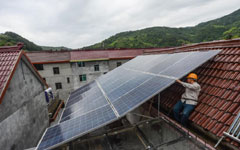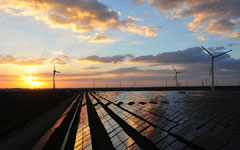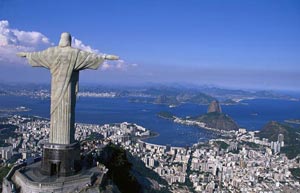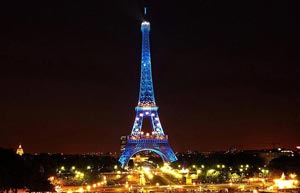It also reduces the building's heat absorption to such an extent that residents whose homes are insulated by the green wall could see air conditioning energy savings amount to between 15 and 30 percent.
In a speech last month, Vivian Balakrishnan, Singapore's minister for the environment and water resources, said: "If you look at the essentials of life - food, water, education, entertainment, jobs and culture - the unit cost of providing all of these is actually cheaper and lower in a dense city than it is in a rural countryside.
|
 |
 |
"So a well-planned, dense connected city is the most sustainable way of life for human beings."
Balakrishnan noted that around half of the world's 7 billion population now lives in cities. In the next 20 years, that proportion will increase to 70 or 80 percent. "So the future of humanity is actually in the city and if you understand that, then you will understand that in fact Singapore has a tremendous opportunity because we are a city-state," he said.
"Our agencies are focused on generating solutions for providing water, electricity, services, jobs, education, entertainment and opportunities in a city. If we do it right, that becomes a model which the rest of the world will look at."
Balakrishnan also noted how Singapore used to be a place with a "strategic vulnerability" because of water.
"We still do have vulnerability," he said. "But because of that, we took reverse osmosis and in the space of 10 years, from zero percent, the public utilities board today can supply slightly more than half of our water supply through reverse osmosis. (By) desalinating water from the sea and recycling used water, we have created the ability to generate a solution to an existential threat."
Lehmann from the University of South Australia says Singapore's success has been built on decades of good government leadership and the ordinary people he describes as "champions" who work tirelessly on the green city agenda.
The city-state is already leading the way in water management and district cooling; integrating biodiversity and vertical greenery into the urban context; and in developing affordable public transport systems, he says.
Making public transport the backbone of development has proven to be a good strategy in that it reduces private car use, he says.
While Singapore has had an enviable recycling program in place for well over a decade, one area it lags down on is the recycling of food waste.
Renee Mison, CEO of food recycling company Eco-Wiz, told the environmental website Eco-Business recently that food waste recycling was not a priority for some food and beverage outlets in Singapore.
|
 |
 |
| The 10 most expensive cities to rent office space |
